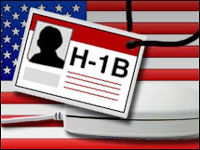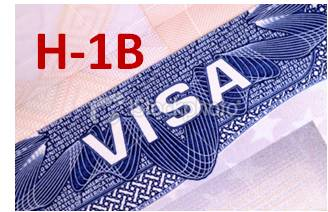 U.S. Citizenship and Immigration Services (USCIS) announced today that it will begin accepting H-1B petitions subject to the Fiscal Year (FY) 2013 cap on Monday April 2, 2012. Cases will be considered accepted on the date that USCIS takes possession of a properly filed petition with the correct fee. USCIS will not rely upon the date that the petition is postmarked.
U.S. Citizenship and Immigration Services (USCIS) announced today that it will begin accepting H-1B petitions subject to the Fiscal Year (FY) 2013 cap on Monday April 2, 2012. Cases will be considered accepted on the date that USCIS takes possession of a properly filed petition with the correct fee. USCIS will not rely upon the date that the petition is postmarked.
The congressionally mandated numerical limitation on H-1B petitions for FY 2013 is 65,000. Additionally, the first 20,000 H-1B petitions filed on behalf of individuals who have earned a U.S. master’s degree or higher are exempt from the fiscal year cap.
USCIS will monitor the number of petitions received and will notify the public of the date on which USCIS received the necessary number of petitions to meet the H-1B cap. If the number of applications received exceeds the numerical cap, USCIS will randomly select the number of petitions required to reach the numerical limit from the pool of petitions received on the final receipt date. USCIS will reject cap-subject petitions that are not selected, as well as those received after the final receipt date.
Petitions for new H-1B employment are exempt from the annual cap if the beneficiaries will work at institutions of higher education or related or affiliated nonprofit entities, nonprofit research organizations or governmental research organizations. Petitions filed on behalf of beneficiaries who will work only in Guam or the Commonwealth of the Northern Mariana Islands are exempt from the cap until December 31, 2014. Employers may continue to file petitions for these cap-exempt H-1B categories seeking work dates starting in FY 2012.
Petitions filed on behalf of current H-1B workers who have been counted previously against the cap also do not count towards the congressionally mandated H-1B cap. Accordingly, USCIS will continue to process FY 2012 petitions filed to:
extend the amount of time a current H-1B worker may remain in the United States;
change the terms of employment for current H-1B workers;
allow current H-1B workers to change employers; or
allow current H-1B workers to work concurrently in a second H-1B position.
H-1B petitioners should follow all statutory and regulatory requirements as they prepare petitions to avoid delays in processing and requests for evidence. U.S. businesses use the H-1B program to employ foreign workers in specialty occupations that require theoretical or technical expertise in specialized fields, such as scientists, engineers, or computer programmers.


